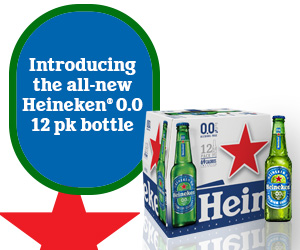

Sean Hughes, Account Director, Connecticut Package Stores Association.
A Retail Balancing Act
By Sean Hughes
It is hard to walk into a large business in 2025 without seeing at least one or two automated cash registers. Larger grocery and big-box stores often feature a dozen or more self-checkout machines, overseen by a single employee. The restaurant industry has also embraced automation with mobile point-of-sale (POS) systems, allowing servers to process payments directly at the table rather than at a fixed location.
With the rise of artificial intelligence and the constant pressure to increase efficiency, it is natural to wonder: Will we eventually see a future where all POS transactions are fully automated, removing the need for human employees in the payment process?
Not long ago, every checkout lane in a grocery or retail store was staffed by a human cashier. Today, we often encounter mostly deserted checkout areas dominated by self-checkout machines. While companies have touted these automated systems as more customer-friendly and streamlined, challenges frequently arise. Issues such as weight sensitivity in the bagging area, items with removable sensors and age-restricted products often require the assistance of the lone employee overseeing the machines.
Amazon’s Just Walk Out technology, which uses a network of cameras, sensors and artificial intelligence to track customers and their purchases, exemplifies this trend. By scanning their credit card upon entry, customers can simply take what they want and leave. This innovative system has been adopted by several NFL stadiums, with Lumen Field, home of the Seattle Seahawks, being the first. Amazon reports that game-day sales have more than doubled since implementing this technology, attributing the increase to the convenience and efficiency it offers.
However, not all automated POS systems have been equally successful. A recent NBC News article, “Major Retailers are Backtracking on Self-Checkout,” indicates that some major retailers, such as Dollar General and Five Below, are scaling back on self-checkout due to a sharp increase in inventory loss. Whether caused by accidental omissions or deliberate theft, these issues have compelled these companies to revert to human cashiers.
 While Amazon’s technology has proven effective in highly controlled environments, like stadium concessions, challenges persist in traditional retail settings. It is unlikely that we will witness a complete transition to fully automated checkout systems in our lifetime. Nevertheless, the trend toward automation is undeniable—and it will continue to shape the future of retail.
While Amazon’s technology has proven effective in highly controlled environments, like stadium concessions, challenges persist in traditional retail settings. It is unlikely that we will witness a complete transition to fully automated checkout systems in our lifetime. Nevertheless, the trend toward automation is undeniable—and it will continue to shape the future of retail.
While large retailers experiment with automation, smaller businesses like locally owned package stores, restaurants and bars are taking a different approach. They are leveraging technology to enhance customer experiences without sacrificing the human touch. Advanced POS systems streamline operations and provide valuable insights, but they are used to complement, not replace, human interaction.
These smaller businesses recognize the importance of personalized service. Human employees are vital to the responsible sale of alcohol, and they also provide an elevated shopping experience, helping customers find what they are looking for, offering suggestions and going the extra mile to ensure customer satisfaction.
As we move forward, it is clear that a balance between automation and human interaction is essential. While technology can streamline processes and increase efficiency, it cannot replicate the empathy, problem-solving skills and personalized service that human employees provide. The future of POS may be automated, but the heart of retail will always remain human.
Find out more about any of these issues and the benefits of membership at ctpsa.com.











